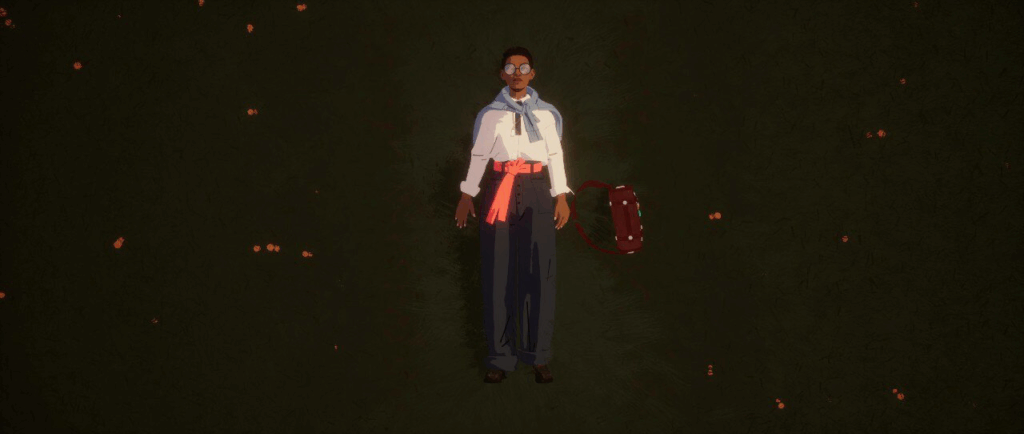
When I play narrative games, I like to be fairly “completionist.” I like to see a complete story because so much can change between the various individual moments, lines of dialogue, or prose. Even when the content of the work doesn’t exactly grip me, I rarely decide to full-on quit before reaching some gameplay (or narrative) conclusion (I’m the same way with books, too!).
As a result, I really enjoy short and sweet narrative games. Experiences that last a couple of hours that hit their mark early and often without dragging things out across unnecessary gameplay or mechanics that inflate total-play-time. I like these games even more because I can reasonably finish them, ponder their writing/message/meaning, and reach a moment of appreciation (or disappointment) before moving on to the next title. Part of this is also fueled by my shrinking ability to start and finish games due to kiddos, work, and trying to run a small studio. All of these factors mean that I very rarely get to “relish” games, even when I get to finish them. I seldom get to stew. I don’t have the time to let a game simmer in my thoughts. More often than not, I find myself―shamefully―doing quite the opposite. I get to certain points where I want the narrative to start wrapping things up, even in games that I really enjoy.
I found this, for instance, in 1000xResist, a remarkable work of storytelling and design. I had “resisted” (lol) the game initially due to some of the initial marketing and promotional material, but once I started playing, I was absolutely rapt. The way the game delicately discusses sensitive themes of family, obligation, identity, individuality, community, responsibility, and alienation is so singular. It’s truly a masterwork of storytelling, and I even think the critiques lofted against some of its gameplay elements misjudge the intentional level/spatial design that, in my mind, underscores the emotional tones of the work. EVEN STILL, when I rounded the last 45min-1hr of gameplay, I felt I was ready for it to end.
But, as I said, that pressure to finish comes from external factors. Family and job responsibilities don’t permit me a lot of time to linger on games. It’s no fault of the designers or writers by any means; it entirely has to do with me. And, yeah, that sucks. I should exercise more patience and give myself more breathing room, or bake in more weekly moments to do this kind of creative research or fulfill my need for contemplative entertainment. I’m trying to do better. But that lil’ voice still persists for now, and it stymies my ability to sit with games and their creative, cultural, critical content.
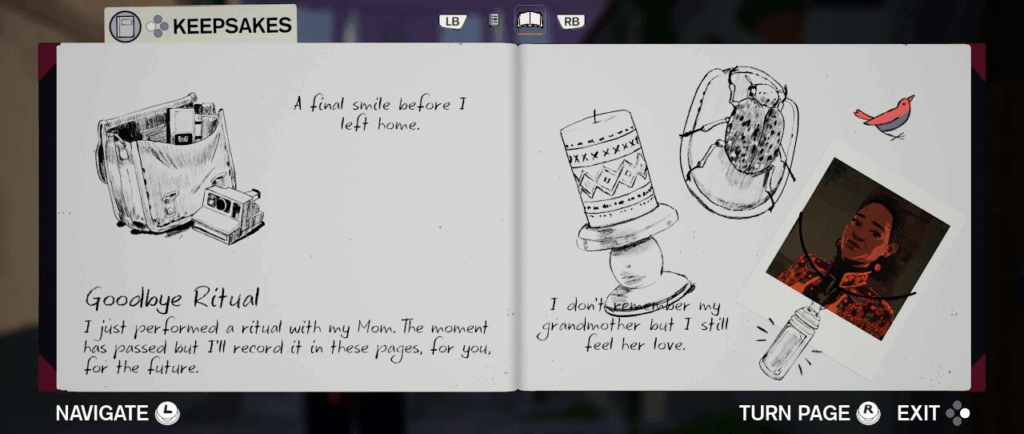
However, when playing Season: A Letter to the Future, all of these impatient tendencies were completely undone.
In Season, you play as a kind of journalist meets archivist, documenting the end of a “season,” a spiritual and cultural era foretold by prophetic, mysterious, but widely understood omens. When a season turns, memories of the past fade or disappear altogether, leaving survivors of a season’s end to contemplate their future amidst seismic social and cultural change. Without getting too deep into the lore of Season, you’re tasked with observing your surroundings and documenting your findings so that you can eventually deliver your journal to a sacred archive that tries to preserve humanity’s collective memory and history.
This job requires you to depart your safeguarded home and wander into the greater world, never to return. To do so is not only risky, but also puts your own ability to stave off the potential dangers of a world drowning in perpetual sleep sickness (a fascinating, if oblique, metaphor for trauma). Once departed, you explore a semi-ruined, solar-punk world on your trusty bicycle, toting an off-brand Polaroid camera, audio recorder, and sketching materials.
The game loop of accomplishing your assigned task is fairly straightforward: walk, look, and reflect. And on its surface, this might not sound very enticing. But as an archivist, how you decide to reflect on your observations happens primarily in a very rewarding journaling exercise. For every “zone” you enter, a new page is unlocked in your notebook. You’re asked to fill out this page as a scrapbook of your pictures, recordings, and sketches. The more you fill up your notebook, the more you reflect on your experience, which in turn unlocks more mementoes. This feedback bolsters the initial game loop while highlighting the central themes of coming to grips with traumatic memory and loss. The more you journal, the less this activity feels like a “gameplay loop” and more like an earnest desire to connect with others to work through collective grief.
There’s been a significant amount of discourse around the need for games to abandon “gameplay loops” as a primary design motivator. Though I won’t dwell on the many voices that have contributed to this, I’ll merely point to the excellent essay, The Case Against Gameplay Loops by Joey Schutz, as a good starting point for that discussion. And though I think the “loop” of Season is really “tight” and clearly outlined for the player, it’s almost beside the point. Or rather, at a certain point, I stopped thinking about my activities in Season as gameplay. This is because the game has an uncanny way of making its loop not feel artificial (or game-y) and more aligned with the emotional and intellectual core. Namely, Season is a game about process.
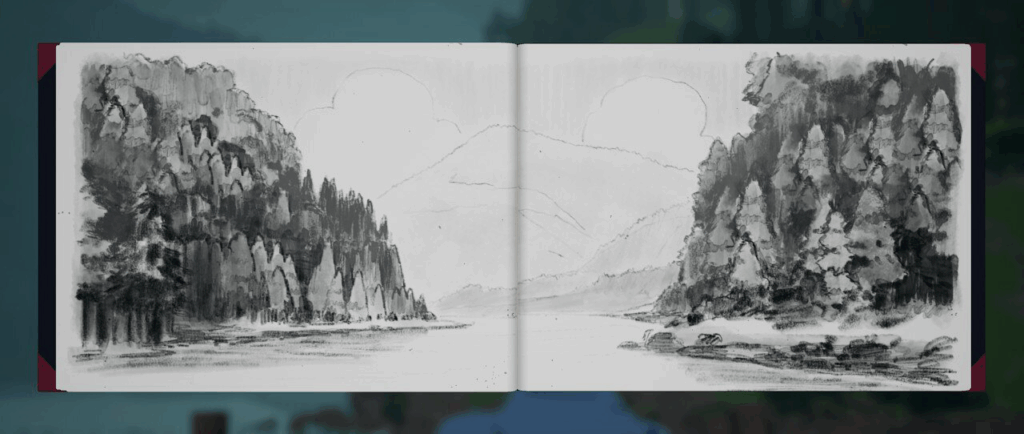
It is a game that asks you to consider your journey and the long arch of your actions and activities, AND consider how you internalize your actions and your surroundings to find meaning/understanding. The process in Season is both a noun and a verb. It is a tangible thing and an unfolding action. You witness several times how the verb can lead to the noun―how, in the act of journaling and recording the Season’s end, you also create an object that documents complicated change. But this process folds in on itself; the change then becomes material that your character and the NPCs you encounter also must confront to reach moments of solace. To witness and/or participate in that feedback is where the game really shines, because Season never asks you to shape the end results, but rather lets you decide how best you wish to honor change and self-forgiveness.
In this way, Season‘s design is particularly clever because the moment-to-moment interaction is so understated. but the cumulation of all of those moments―documented in your journal and through your archived materials―transforms into a powerful gesture. It simulates the importance of archival work by asking you to do the work itself: at times a bit mundane, but fundamentally necessary for the benefit of advancing and advocating for culture. Through documenting, you must be careful and discerning, but you also have to guess, explore, and experiment. You cannot innately know what will be important to future generations, but as you delve into your process, you start to inherently prioritize the significance of some ephemera over others. Capturing sprawling vistas might make for a nice photo, but it might not be as important as collecting soon-to-be-destroyed anti-war leaflets.
The game reinforces this aspect in deliberate and subtle ways, guiding the players’ eyes and ears while also encouraging open-ended exploration. Season strikes a wonderful balance between scripted sequences with specific outcomes and expressive play (ala Jasper Juul) where players determine significance and meaning in very subjective, personal terms. Some journal pages, for instance, have pre-set diagrams that force the players to search for specific items, pictures, or audio samples. These progress central plot points that unlock specific cutscenes and internal monologues from the protagonist that serve as emotional/thematic touchstones. Contrasted against journal pages where you get to decide how you want to arrange (and rearrange) your archival material, the game designers then provide avenues for more “open-ended” moments of reflection that merely reinforce or further ruminate on previously established (or ongoing) thematic questions/topics.
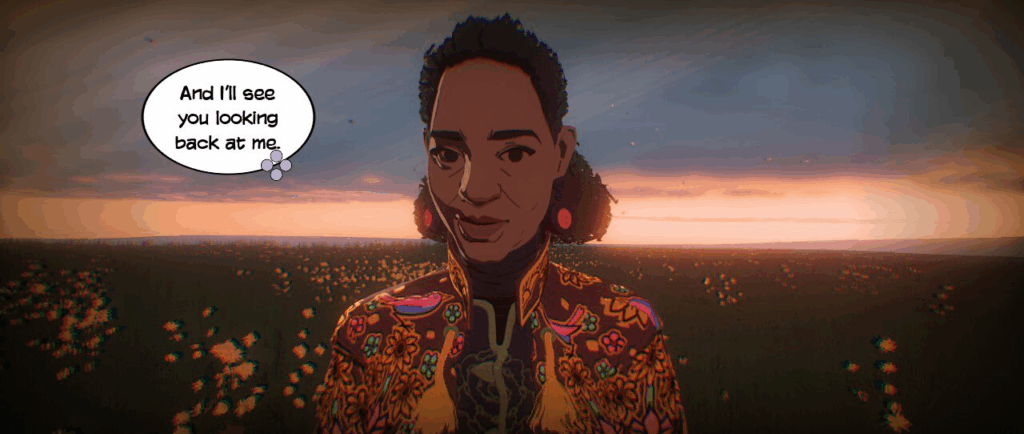
This “aesthetic scaffolding” of essential story pillars supported by expressive exploration is wonderfully executed in Season. When the player character has moments of revelation from completing pre-set journal pages―some of which involve stunning pseudo-psychedelic cinematic set pieces―the ensuing ruminations on the nature of grief, change, and processing the past nail a pitch-perfect dramatic and poetic tone.
This isn’t all so expertly executed purely by design: the earnest prose is direct and plain, without pretension but full of sombre wisdom. It’s the kind of writing that requires contemplation, not because of its complexity but because of its depth. Several moments, I felt myself nodding along to the protagonist’s musings and aphorisms, not always in complete agreement, but in appreciation of their nuance and grace. This is because the player character in Season does not completely understand the world they’ve been thrust into, and they carry the weight of their journey with trepidation and deserved skepticism. But they also approach the world and its inhabitants with openness and compassion. It’s so refreshing to play as someone willing to be vulnerable and thoughtful with their words and actions. And it’s equally rare to have a game world populated with individuals willing to reciprocate.
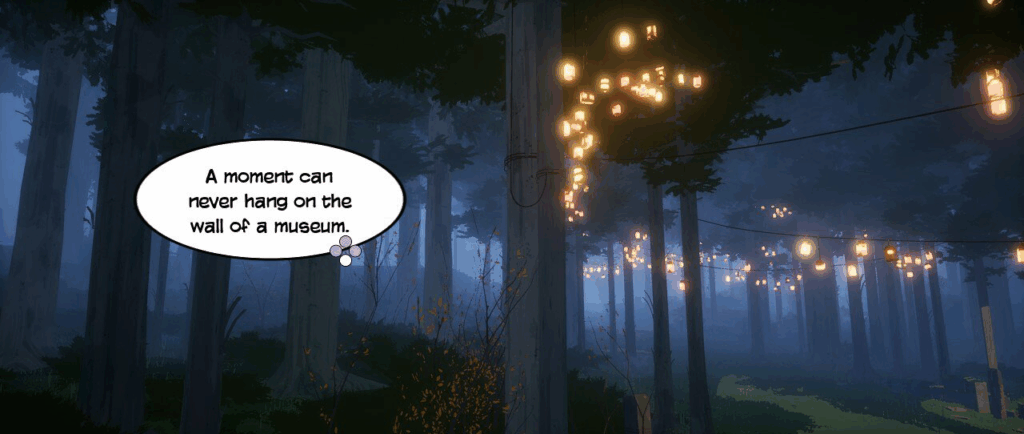
All of these qualities of Season―a game brimming with intentionality and care―quelled all my anxious desire to complete the game as quickly as possible. I dwelled on the experience, lingering in my journal, hanging on to every meditative moment, unwilling to turn the page even as the game itself reminded me that the only way to truly process the weight of the past is when you’re ready to let it go.
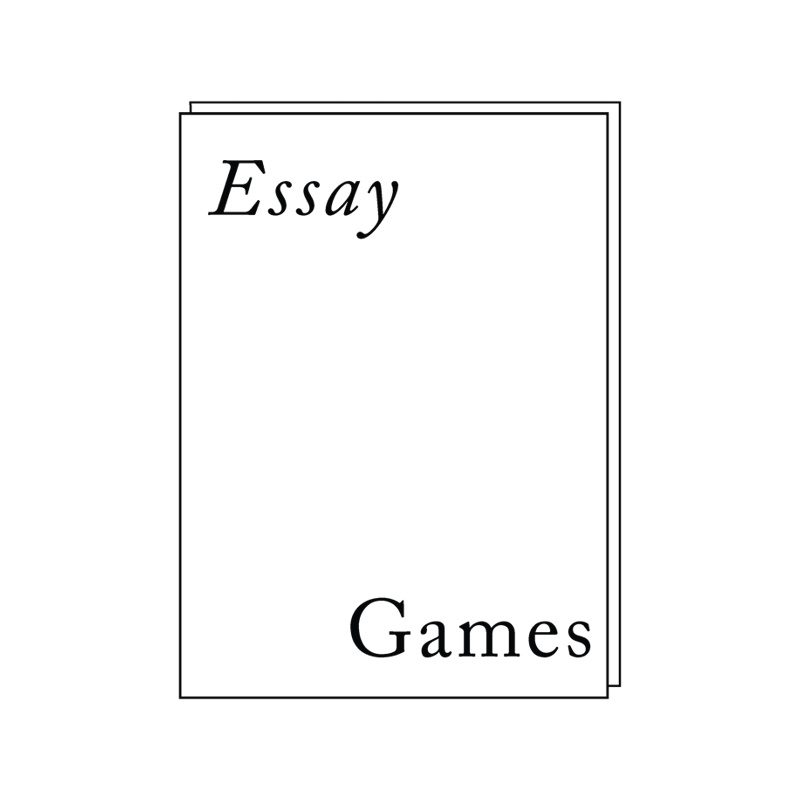
Leave a Reply